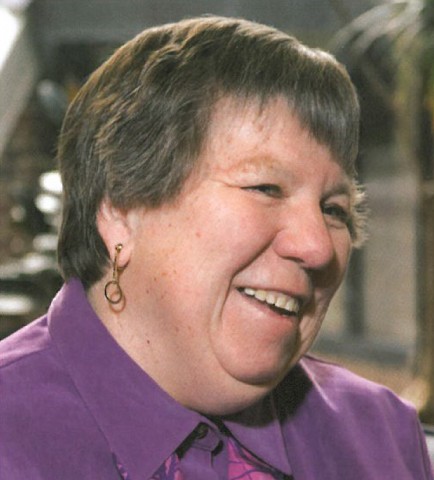
The fit between Elizabeth Mutschler d the U-M School of Social Work rs easy to see. "I moved to the United States to continue my studies m social work. At the time, there were no advanced study options for that in Germany. I attended Washington University in St. Louis, and I worked closely with Aaron Rosen, an early graduate of the Joint Doctoral Program in Social Work and Social Science."
Rosen spoke highly of Michigan, and Mutschler joined the School of Social Work faculty in 1979 as an assistant professor. "I was drawn to Michigan because it's a place where research is valued in its own right," she says. Through her early work, she sought to re-define the question that researchers had been asking about social work's effectiveness. "In the past, the question had been: 'Is social work effective?' That's like asking 'What is the effect of a storm?'" She focused on questions about what kinds of interventions are effective, for what kind of clients, with what kinds of problems, under what conditions and with what kind of therapists and/or service providers.
"One of the objectives of the social work curriculum revision in the 1980s was to integrate this type of research approach into the teaching of social work practice. As a member of the curriculum committee, I learned a great deal from Robert Vinter about curriculum development: seeing the interrelationships between social work practice and the social work curriculum on one hand, and between the University and the School of Social Work on the other hand."
During her career, Mutschler was instrumental in integrating information technology (IT) into the School and its work. She participated in pilot projects with University Hospital and Methodist Children's Home, incorporating IT into their services. She organized computer trainings for faculty and students and consulted on IT for the new building.
She also focused her energies on research and training in international contexts. "In the 1980s, questions of accountability and effectiveness of human services were asked in many countries," she says. "I was invited by various schools of social work to help develop evaluations and computerized information systems in Israel, Australia, China and Germany. This exposure to human service systems in different cultural contexts helped me to understand international students, whose U.S.-oriented training did not always meet the needs in their own countries. As a result of this work, I was involved in various efforts to rethink and reorganize the international components of social work education for international and U.S. students."
She particularly recalls that she "enjoyed the interchange between research and practice: testing research findings in practice settings, where the findings, in turn, enriched teaching, and preparing students for leadership in human services."
Since being named associate professor emerita in 1998, Mutschler has spent a lot of time traveling and volunteering. "Originally, I'd wanted to do something totally different than social work, but I can't get away. I worked with hospice for a few years, and I've become very interested in gerontology and successful aging. Most recently, I've been working with a program through AARP that offers tax assistance to seniors. I have the time, I get to work with people, and I enjoy it very much."
-Terri D. Torkko is the editor of Ongoing.